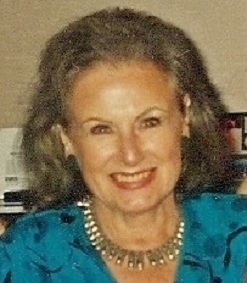Tonie Nathan facts for kids
Quick facts for kids
Tonie Nathan
|
|
|---|---|

1993
|
|
| Born |
Theodora Nathalia Nathan
February 9, 1923 New York City, U.S.
|
| Died | March 20, 2014 (aged 91) Eugene, Oregon, U.S.
|
| Alma mater | University of Oregon |
| Occupation |
|
| Political party | Libertarian |
| Spouse(s) |
Charles Nathan
(m. 1942; died 2012) |
| Children | 3 |
Tonie Nathan (born Theodora Nathalia Nathan) was an American who worked in radio and television. She was also very active in politics. Tonie Nathan made history in 1972. She became the first woman ever to receive an electoral vote in a U.S. presidential election. She was running for Vice President with the Libertarian Party.
A person called a "faithless elector" voted for her. This elector was Roger MacBride from Virginia. He chose to vote for Tonie Nathan and her running mate, John Hospers. This was instead of voting for the Republican candidates.
Contents
Early Life and Career
Tonie Nathan was born in New York City in 1923. Her parents were Jewish. Her last name was Nathan, and she later married a man with the same last name, Charles Nathan.
Before she moved to Eugene, Oregon, she had many jobs. She ran her own insurance business. She also had a music publishing company and a decorating service. These businesses were all in the Los Angeles area.
In 1971, Tonie Nathan earned a college degree. She studied journalism at the University of Oregon. After that, she worked as a producer for radio and television shows. She produced a daily talk show on KVAL-TV in Eugene. Sometimes, she even hosted the show herself.
Political Journey
Running for Vice President in 1972
In 1972, the Libertarian Party had its first meeting to choose candidates for president and vice president. Tonie Nathan was chosen to run for Vice President. She ran with presidential candidate John Hospers. He was a philosophy professor.
Their team did not get many popular votes. But something very important happened. A Republican elector named Roger MacBride from Virginia decided to vote for Hospers and Nathan. This was a surprise vote.
Because of this, Tonie Nathan became the first woman in American history to get an electoral vote in a presidential election. She was also the first Jewish person to receive an electoral vote.
Tonie Nathan and John Hospers wanted the government to be less involved in people's lives. They believed in minimal government rules.
Later Political Campaigns
Tonie Nathan continued to be involved in politics. In 1976, her name was put forward again for the Libertarian vice-presidential nomination. However, she did not actively campaign for it and another person was chosen.
She also ran for other offices many times. These included the United States Senate and the House of Representatives. She ran in the 1970s, 1980s, and 1990s. For example, in 1980, she ran for the U.S. Senate in Oregon. She also ran for the Oregon State Senate in 1992 and 1998.
Other Political Work
Tonie Nathan helped start the Libertarian Party. She was also a former vice-chair of the party. She also helped start the Association of Libertarian Feminists. She was a former president of that group too.
In 2012, she spoke at the Libertarian National Convention. She also announced Gary Johnson as the party's presidential candidate that year.
Her Political Beliefs
Tonie Nathan was first a Democrat. But her son, Paul, gave her some writings by Ayn Rand. These writings were about freedom, free markets, and being an individual. They helped change Tonie Nathan's political ideas.
She then switched from the Democratic Party to the Libertarian Party. She went to the Libertarian Party's first meeting in 1972. She was just there to watch and write about it. But then she was asked to join the national ticket as a running mate.
Personal Life
Tonie Nathan was married to Charles "Chuck" Nathan. He was a composer who wrote popular songs in the 1950s. They were married for a long time, from 1942 until he passed away in 2012. They had three sons together.
Tonie Nathan passed away on March 20, 2014. She was 91 years old. She died from Alzheimer's disease.
 | James Van Der Zee |
 | Alma Thomas |
 | Ellis Wilson |
 | Margaret Taylor-Burroughs |

